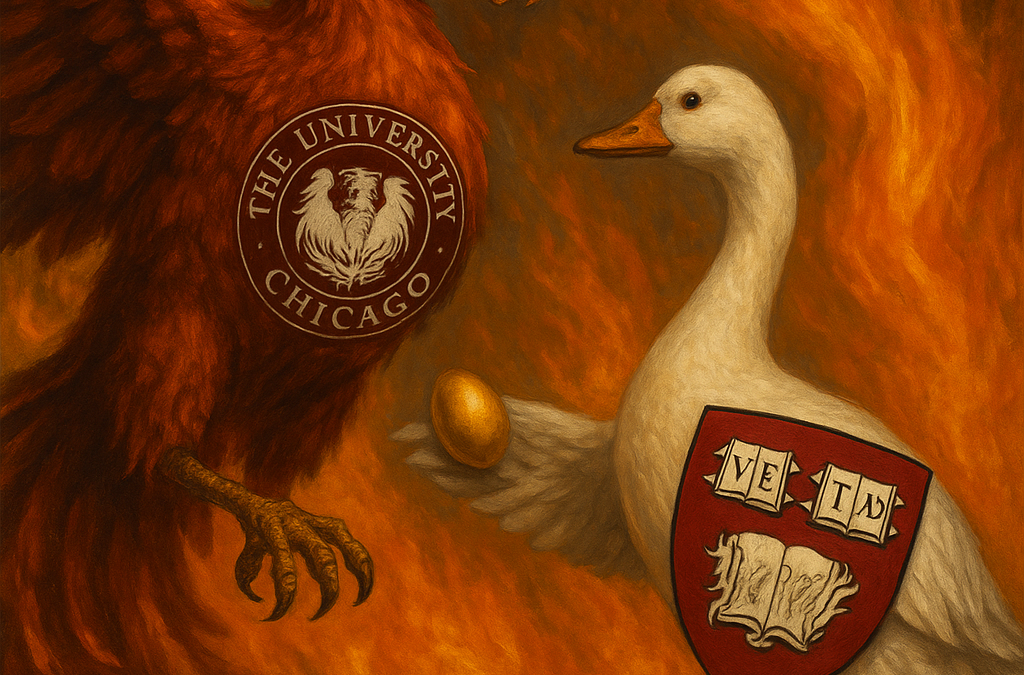As part of the process of applying to universities in the United States, no doubt many of you have encountered the dreaded college essays, pieces of writing in which you are meant to address some of these rather abstract prompts that ask you about things as deep as your identity, your dearest beliefs, and the concepts that you hold to most attachedly in this world.
Each of these prompts, as the student will soon discover, presents a conundrum:
The conundrum of how to speak meaningfully about the content of one’s soul, one’s life, and moreover, evaluate these things in sum to create something that is ultimately valuable, worthy of consideration, and that showcases the person’s personality, interests, as well as future and anticipated potential within the years to come.
By no means is this a trivial process, but in this guide, we will go into some of the issues and considerations that come with writing this piece of work, and also some helpful tips for understanding how to do so in a way that will not only impress an admissions officer, but also offer lasting benefits that will endure throughout the entire course of a lifetime that will be filled with many reflections and moments that are worthwhile, not only of consideration, but also of memorializing.
With that in mind, I present 9 convenient steps that you can follow in order to produce a great response to some of these essay questions. Ready? Let’s go!
Step 1.
Consider the prompts.
The first thing that you want to do when you’re writing an essay is to spend some time just looking at the prompts and thinking about what they are asking you about. Dedicate perhaps an hour or two hours to simply sit down and read them as you contemplate the possible ways in which you can respond. During this time, you will think most likely about some of the things that you experience and the ways in which you can possibly write your essay. Write everything down on a piece of paper.
That said, this is not the only thing that you should do, as writing a college essay isn’t just about sitting down on one specific occasion and being able to pen out your entire soul. No, chances are, the moment you first write out your thoughts, you will have a confused mixture of different things, an activities list, a list of achievements. You may not even know what you’ve done or how to take stock of it just yet.
This naturally brings us to the next step.
Step 2.
Create an activities list.
Your activities list is a list of the different things that you were involved in on an extracurricular basis throughout your time in school and leading up to the college application.
Here’s where you will get a chance to think about the specific things that you’ve done and also to accomplish something important for the purpose of applying to college.
The reason I mention writing the activities list here is that writing an activities list has a dual purpose.
First of all, if you write it and format the list correctly, ensuring that you stay under 150 characters for every single description that you provide, you will, in turn, have a properly formatted and useful activities list which you can utilize for the purpose of submission alongside your common application.
That’s the first purpose.
The second purpose is that you’ll also have something that you can look at so that you can take stock of the things that you have done throughout the course of your high school career and in turn, obtain the raw material that’s necessary for you to reflect upon as you think about the common themes that resonate throughout your application and that can be manifested throughout each piece of your application.
As you write your activities list, you will have a good sight of the different types of things that you are involved in, and can begin to then identify the themes that extend throughout your application as you consider who you are. That’s the very next step.
Step 3.
Reflect on your motivation.
College essays are a chance to showcase yourself, but they are also a marketing exercise to demonstrate why it is that you are a good fit for a selective institution of higher education.
The good thing, though, is that what colleges respond to in this marketing process corresponds to what you can meaningfully identify about yourself as you think about all the things that you have done, are doing, and will be doing in the future and manage to successfully identify the things that resonate about your college application and also about yourself.
Ask yourself along the way some of the following questions.
1. What was my motivation for undertaking some of the activities I did?
2. How are the activities I listed related to specific facets of my personality?
3. Are there discernible patterns or common threads in my activities that reveal something about me?
4. Why did I choose to engage in a particular activity at a specific time, and what does this decision reveal about my character?
5. What do my actions and choices suggest about my future potential or aspirations?
By addressing these questions, you’ll be better positioned to highlight attributes and experiences that resonate with your college application and personal self-awareness.
It’s worthwhile also to note that answering some of these questions will give rise to even more sub-questions, and that somewhere along the way you may find that this will lead into a recursion of numerous why questions. This is both perfectly normal as well as extremely desirable, because it requires you to in turn begin the process of answering deeper and deeper questions about your internal motivation as you proceed along the journey, and in turn become more aware, reflective, and consider different aspects of your personality or psyche that may be underpinning your manifestation of decisions and also actions in this world.
That said, while reflections are wonderful, occasionally you can go down a rabbit hole which is not conducive towards the overall goal that you are trying to accomplish.
At some points, it’s good to signpost yourself and to look back at the overall direction that things are going as you steer yourself in alignment with a direction that is conducive towards your overall goals. This naturally leads us to the next step.
Step 4:
Recalibrate and reconsider the prompts.
It’s crucial to ensure that this process does not get out of control though, and also to condition the thought process and the general direction of your thoughts by constantly referring to the prompts that you are considering, proceeding to identify which prompts resonate most with the thought process that you are experiencing, and then procedurally eliminating the ones that do not seem relevant towards the direction that your thoughts are taking.
Of course, some argue that it’s entirely possible to write an essay without referencing the prompts in the very first place, and then simply at the end of the day fitting a particular line of thought or essay towards the prompts, or choosing a free response prompt though, I personally would aver from this because I do believe that they are valuable for the purpose of conditioning a person’s thinking and directing them along a pathway that will lead towards attainment of meaning in the course of reflections.
So do think about the questions as a whole, and use them to guide your thoughts. They are a tool for reflection, and not simply just a challenge, as almost everything in this world is as well.
So far we’ve talked a lot about the cognitive process of deciding what to write in the course of an essay. That being said though, although the cognitive process of thinking is tremendously important, it can also occasionally be overwhelming. And therefore I prefer the next step not as necessarily something that you should do as part of a linear process, but also as a separate and modular step that can interface with the previously mentioned steps in any particular order with respect to an understanding that the possibility of each individual step is in simultaneous causality with the others.
Step 5.
Simply begin with any prior preparation.
In a recent interview with a former student of mine who is now at Harvard University, he provided some insight on how he managed to obtain a 4.0 GPA at the university.
In mentioning how he had managed to do so, he observed that he took a problem-focused approach by which he simply goes into the process of solving problems without necessarily understanding how to deal with the material, supplementing his understanding and appreciation for the concepts that he is meant to learn by filling them in procedurally along the way.
While the context is not exactly identical, it does rhyme, because both dealing with problems as they arise and writing college essays requires the ability to embrace uncertainty, and not simply to embrace uncertainty, but to dance with it.
With that in mind, the very same problem-centric approach can be taken towards college applications and also with respect to writing an essay because the process of beginning a piece itself can catalyze certain thoughts that otherwise may not have existed within a person’s mind in the very first place. Although of course, if it was undertaken blindly, then it would simply lead to the conundrum that so many people face when they begin this process for the very first time, unable to decide what it is to write about in the very first place.
Still, there are some merits to this process of reflection only to a minimal extent before beginning the process of writing because the very act of tackling the problem in the very first place, ideally via short and spaced sessions that serve as a touchpoint upon which the project itself can begin, can stimulate thoughts as well as a beginning that will not correspond to wasted time but rather contribute both proximally and ultimately towards the attainment of the final goal to which an applicant aspires.
Step 6.
Iterate, Iterate, Iterate.
As you may have noticed from the description of Step 5, each of the steps that I’ve mentioned so far are related to one another in some way and can also be undertaken independently from one another, and are part of a process of daily feedback that in turn leads to self-improving over the course of time, and also will become part of a daily process of improvement that will span over a period of time that will certainly be longer than the five minutes that you may have taken to read this piece.
The process of developing sufficient self-awareness and depth of thought to be able to consider one’s life on a deeper level than 99% of the human population is not something that can be accomplished in the course of mere minutes, hours, or likely even days. Rather, it is more of a war than a battle, and it will take a significantly longer period of time than you might initially imagine.
Therefore, dedicate time to this, knowing that how long it may take for you to reach the requisite level of insight to create something that is meaningful or otherwise valuable to an admissions office may differ compared to someone else who may have undertaken this process at greater length relative to you at some earlier point in the past.
Tweak a paragraph. Change a sentence. Rephrase something. Each individual word that you choose can entirely influence the meaning of the sentences that you write. Inspire a new idea. Change the story that you tell. And lead in turn to further thoughts. Embrace this uncertainty. Embrace the fact that you do not know. And also embrace the possibility that you can confront the things that you will know as they come out, step by step, one after another, in ways that may not seem to have a significance to you at the moment, but ultimately underlie something that is deeper and of greater significance than you can have imagined at an earlier point of your life.
Nothing is ever wasted. Therefore, do not think of time spent in nothingness as wasted. Rather, appreciate the deeper significance of each moment towards accomplishing the goals to which you aspire and also their role in determining the future goals that you will have that you may achieve them as well, and keep trying and standing up, showing up to do what you need to do to reach the goal of unleashing your inner potential while at the same time impressing an admissions officer through a method the nature, means, or parameters of the solution that you will uniquely create be unknown to you at this point in time.
Step 7.
Do not be afraid to ask for help.
I mean exactly what I said here. You should immediately ask for help in the event that you do not think you can do something. Literally just abandon your ego. It’s overrated. You think to yourself that you are the master of everything? No, you are not. Throw that away and immediately look for someone who knows you better than you do yourself, knowing that that at best can only remain a temporary thing because eventually, through this process, you will develop greater understanding. But so long as you do not first begin by seeking help either through people such as your parents, your friends, who are close to you, your teachers, or perhaps even me if you choose to engage me as a consultant.
The process of developing sufficient understanding of oneself in order to create a piece that contains the entirety of one’s soul is by no means a trivial process. It is a process for which many people are woefully underprepared, partly in virtue of the fact that the education system does not convey the ability to do these things as a matter of course, and it requires a certain level of self-investment, reflection, and also maturity of thought that can either be brought about by intentional activity or, in turn, by certain accidents that may transpire along the way.
Seeking guidance from the eyes and perspectives of other people in order to understand oneself is crucial during this process, as we can sometimes see aspects of ourselves that we may not have been able to understand simply by using our own vision.
This is particularly true for people who know us well, although it’s crucial to remember that at the end of the day, he or she who writes about the nature of their soul is the person who knows that soul the very best, even though at the bottom, life was already tremendously complicated at the point at which we became conscious of it and began to comprehend it.
So yes, seek help. Do not be totally reliant upon it, because that will never work at the end of the day. But above all, remember, seek help. Sooner than later. Ensuring that you have enough time to deal with the implications of your reflections, and will be able to go through this process while allowing yourself the space to extend the range and domain of the reflections that you will have about your soul.
Step 8.
Be kind to yourself.
First off, let us acknowledge that this process is not an easy one, and that not everybody is equally prepared to undertake it.
Having acknowledged this, realize nonetheless that you should be kind to yourself, understanding that the depth of your reflections, or the ideas that come out from your head, may not be as extended or deep as those of others.
You may question your ability to write, your extracurricular activities, and the different things that you did or did not do in the course of your high school career as you undertake this process of application.
During this time, it’s crucial to remember that your greatest enemy is yourself, and that it is the demons that lie within your head that are far more dangerous than those that lie without. For the world is not out to get you, and if somebody wishes to crucify you and succeed, it is far less likely that they should succeed in doing so if they were something external to your mind than if you were the person who was imagining a theatre in your head, in which an unnamed mass were undertaking that process of putting you upon a stake and setting you on fire. That imagination and that image can only be initiated by yourself, and it is by you and by your own hands that you have the strongest possibility of quenching the fire and using the ashes to stimulate the growth of your dream.
The famous theologian Reinhold Niebuhr is credited to have written the words of what is now known as the Serenity Prayer. God grant me the serenity to accept the things I cannot change, courage to change the things I can, and wisdom to know the difference.
As human beings, we are all individuals, and we have undertaken different things and experienced different things along the way. And on the surface, it can seem that some of our achievements are less stellar relative to others, or we may have won fewer medals, or accomplished things that are less of note. But during this time as you reflect upon yourself, it’s worthwhile to consider that at the end of the day, the thing that distinguishes an individual is not the shine of the medals that they have obtained, as the light reflects upon them, but rather the light that emanates from within, as a person reflects upon themselves. In life, it is crucial to remember that in a world of glitz and shine, it is infinitely more important to see not the beauties of the world that lie without, but rather the wonder that lies within the ordinary. Far more impressive is it to be able to see the wonder that lies within mere grains of dust when one looks upon them with greater clarity and with a lens that has been shaped towards greater understanding, rather than simply looking at pictures of the Cinque Terre on Instagram and wishing that one were there.
This naturally leads me to the final step.
Step 9.
Have confidence in yourself.
Along the way, as you go through this journey, you may face several forms of doubt, some of which may dominate more relative to others as you consider the way in which you can or will present your achievements. In this time, it is crucial to recall the reasons as to why you decided to undertake this process in the very first place and to use those reasons to give you strength as you consider the nature of the goal that you wish to accomplish.
Beyond those individual reasons which you can see upon the surface, it is likely that there is something deeper that is driving you in ways that you may not even be aware of at this point in time, or you would not have read up until Step 9.
If you are here, I would applaud you on this, as it is something rare to see that somebody would have the necessary degree of attention and focus to be able to continue up until this point.
Still, if you are here, perhaps it is for a reason that lies beyond the immediate appreciation of your consciousness at this point in time.
Do pay respect to that and let it drive you forward, as you remember that there is a certain meaning to what it is that you are doing at this point and will continue to do in the future.
Yet do not beat yourself up because one at the end of the day should not compare the highlight reels of another person to the blooper reel of one’s own.
This is a marathon and not a race, and it is a worthwhile journey to go on as it will pay dividends to you long after the moment in which you consider the words written upon this page.
Treat it as such, and enjoy your journey along the way.
Now, I did say that there were just nine steps, but here’s one that underpins every single one of them.
Step 0.
Start early.
This should be evident or otherwise completely obvious to you, but you should start early.
Time is an objective thing, and it is a limited resource. One can gain nothing by disrespecting this, hoping that somehow or another the parameters of reality should be overturned, and that one can expect that doing something at a later time will lead to a better result. Compare to the result that one could have gotten in an alternate scenario or state of the universe where one had begun earlier and given oneself the time requisite towards attaining the outcome of which a person had sought.
Conclusion.
And that’s it.
I know that it was a long piece, but if you did indeed read this to the end, know that I wish you my very best as you undertake this process and go forward. There is a significance to what you have done, what you are doing, and what you will do.
There’s not very much left to say beyond this point, but that I wish you the very best in this journey, which I hope will take you to somewhere wonderful that you could not even have imagined before you had even begun reading it or taking part in it.
Receive my wishes for your success as you move forward, knowing that while it is a selective process, and that at the end of the day, only a select few will rise above the circumstances, the fact that you are reading this at the moment means that you have given yourself a chance, and you have believed in yourself enough that you see the seeds of possibility that may sprout or may not, that you too can be one of those few who do rise above!




